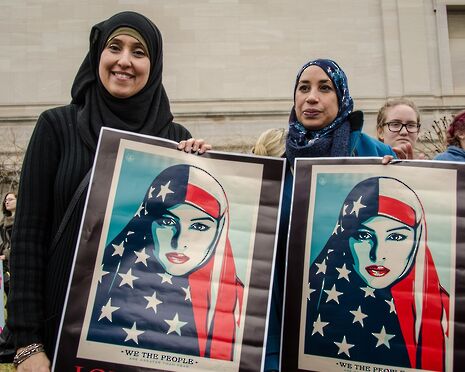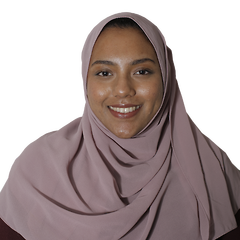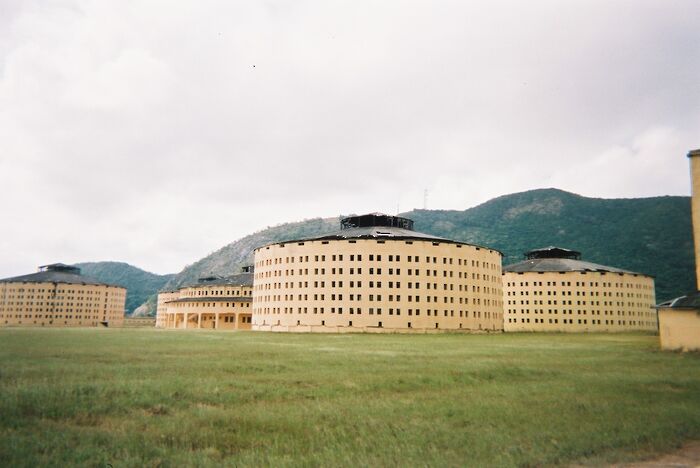How moving to Cambridge made me value my hijab more
The difficulties of donning the hijab in Cambridge led columnist Nusrath Jahan Tapadar to reckon with what it truly means to her

Every day since I was ten, I’ve woken up in the morning, tied my hair back and wrapped a long piece of fabric around my head. Almost nine years down the line, this piece of fabric – the hijab – has become an extension of myself.
Growing up in cosmopolitan London, which has a relatively sizable Muslim community, my hijab was never something that stood out or required explaining. It was just another aspect of my religion that I accepted – until I came to Cambridge and moved to a college where I was the only one wearing it. Suddenly, something which had always felt natural to me appeared completely otherwise. It seemed to become a barrier. During Freshers’ Week, there were countless instances when I would speak to somebody (often male), only to be completely ignored. I was also often too anxious to go to most Freshers’ events, since they involved drinking or clubbing and so put me out of place.
I wear my spiritual and political views on my head for everyone to judge, something which had never scared me this much before coming to Cambridge
But Freshers’ Week only marked the start of the alienation I’ve encountered at Cambridge: my favourite experience involved a man shouting “You’re a Muslim ain’t ya!” and following me down St Andrew’s Street at night after I told him I didn’t have any spare change, a situation which I only managed to escape by running back to college. This is thankfully not a regular occurrence, but in my day-to-day Cambridge life the sheer impact of seeing barely anybody that looks like me is often just as alienating. I am always hyper-aware of the fact that in almost every day-to-day scenario, my hijab makes me the visible odd-one-out. I wear my spiritual and political views on my head for everyone to judge, something which has never scared me this much before coming to Cambridge.
Before coming to Cambridge, I had never felt such a strong urge to just look ‘normal’ and correspondingly to fit in with conventional beauty standards. Suddenly, I wanted to see myself as ‘pretty’ as the girls around me, and so the same process of wrapping a scarf once around my head and throwing the long end over my shoulder, which I had done for nine years, became harder and harder each day. Throughout the years I have been called many names; ‘Bin Laden’s wife’, ‘towel-head’, ‘ninja’ and – no points for creativity here – plain old ‘terrorist’; but none of these labels ever made me as uncomfortable about wearing my hijab as my first two terms in Cambridge did. I was incredibly lucky to have friends in the Islamic Society who helped me feel like I belonged at Cambridge, but that didn’t remove the consciousness that once I left the prayer room I was once again a visible minority.
My experiences here have forced me to reflect, in a way I hadn’t before, about why I wear the hijab. In a world constructed for the benefit of the male gaze, the hijab, to me, is an outward, defiant rejection of the aesthetic standards expected of women. Covering my hair and the general outlines of my body is a refusal to conform to what society tells me I ‘should’ look like. Anyone who meets me is forced to regard me, not as the sum of a physicality I didn’t choose, but in the way I choose to carry myself. I am the kindness with which I treat people; the fierceness with which I defend my beliefs; the love I share with those important to me.
I’m sick to death of people trying to ‘save’ me from my ‘oppression’
That’s not to say it isn’t still difficult: it absolutely is. I still find myself getting ready in the mornings with a tiny pang of longing, especially when I’ve just deep-conditioned my hair. But taking my hijab off for the sake of appearing more attractive won’t fix the problem; I’d only find something else to feel insecure about. Sticking by my hijab everyday forces me to seek validation from myself, and only myself, focusing on sharing the beauty that lies within my character, instead of that which lies in my hair or waist size.
There’s a common belief that the hijab is an ‘anti-feminist’ tool designed to suppress women and keep them in a state of subordination. I’m sick to death of people trying to ‘save’ me from my ‘oppression’ – it’s hard enough to feel like you belong in a place where you choose to look different from everyone else without being judged as helpless and oblivious to your own oppression. It takes so much more strength for me to wear it than to not. The choice to wear a hijab is not an easy one – I completely sympathise with anyone’s reasoning in choosing not to wear it – but ‘choice’ really is the key word here.
After much deliberation about the hijab’s place in my life, I concluded that allowing angry drunk men, ill-mannered freshers or ignorant Euro-centric judgements to change a part of my life I have always been happy with would be to concede a part of my identity (which really isn’t my style). My time here has triggered a full-blown identity-crisis, but I’m incredibly glad it did. Out of that anxiety came reflection, and I developed the confidence to realise that I have as much of a right to express myself as anybody else.
My choice to dress like this does not concern anybody else. I do not spend hours dying my hair to impress anyone but myself, spend half my student loan on lingerie to impress anyone but myself, and wear a hijab, not because I’ve been brainwashed by a backward, patriarchal religious system, but for myself. That’s not something I had the courage to say before.
 News / Downing investigates ‘mysterious’ underground burial vault 29 December 2025
News / Downing investigates ‘mysterious’ underground burial vault 29 December 2025 Lifestyle / Ask Auntie Alice29 December 2025
Lifestyle / Ask Auntie Alice29 December 2025 News / Unions protest handling of redundancies at Epidemiology Unit30 December 2025
News / Unions protest handling of redundancies at Epidemiology Unit30 December 2025 Features / ‘Treated like we’re incompetent’: ents officers on college micromanagement30 December 2025
Features / ‘Treated like we’re incompetent’: ents officers on college micromanagement30 December 2025 Science / Astronomical events to look out for over the break29 December 2025
Science / Astronomical events to look out for over the break29 December 2025











